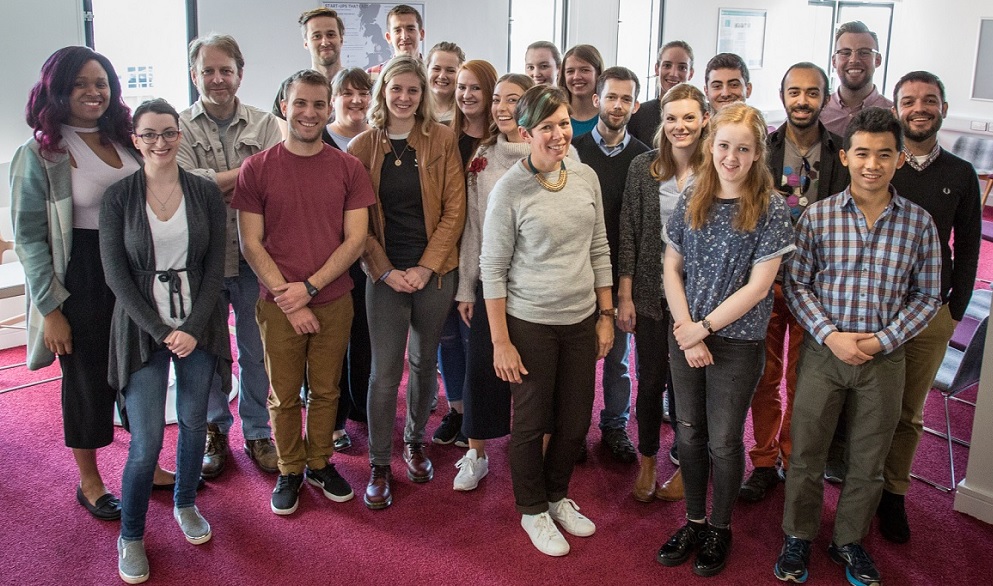Hi, we’re Noelyn, Jen, Oliver and Chris, the first Manchester cohort of the Data Analytics and Society CDT. We are based within the Social Statistics department at Manchester but are also part of the Data Science Institute; comprised of over 600 researchers and methodologists across the Science and Engineering; Humanities; and Biology, Medicine and Health Sciences faculties.
At Manchester, our partner organisations are the market research and data analytics firm YouGov; Medical Data Solutions and Services and the Burns and Plastic Surgery Service at the University Hospital South Manchester; The Greater Manchester Health and Social Care partnership; and the Vegetarian Society. It’s exciting to be part of a cohort working on diverse projects ranging from examining and predicting political attitudes by combining survey and social media data; using machine learning to predict and classify healthcare outcomes; developing data science methods of evaluating the impacts of devolving healthcare spending; and using survey and social media data to explore social and psychological influences on dietary choices.
While our research is still in its early stages, we are looking forward to carrying out internships at our partner organisations in the next couple of months and putting the data skills and knowledge we’ve been developing as part of the CDT into practice in a ‘real world’ context.
Recently all the CDT PhD students from Leeds, Sheffield, and Liverpool travelled to Manchester for the Understanding Data and Their Environment module. With Professor Mark Elliot from the Data Science Institute and Dr Nuno Pinto from Urban Design and Urban Planning, over a week we explored issues relating to data anonymisation and deidentification processes, security and disclosure control and the complex legal and ethical issues surrounding these.
Later in the week, with guidance from Dr Yu-wang Chen from the Alliance Manchester Business School we also learned a lot about data pre-processing methods, different approaches to linking databases and strategies for dealing with some of the inherent difficulties in data integration. We then had the opportunity to put our newfound skills into practise in group exercises looking at sales forecasting and classification for business analytics and combining socioeconomic data to look at factors which may affect life expectancy in London. Overall it was a challenging but enjoyable week – it was great to catch up with CDT students from the other universities and share our experiences of being PhD students so far, so we’re looking forward to the next CDT module in Liverpool in March.
